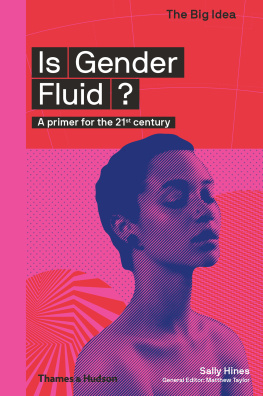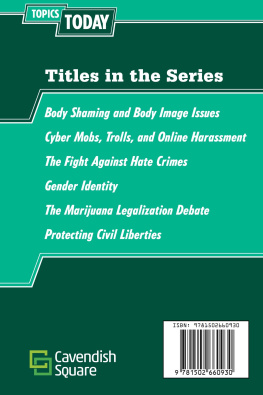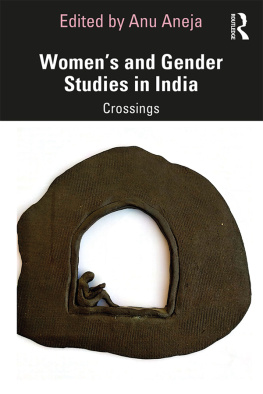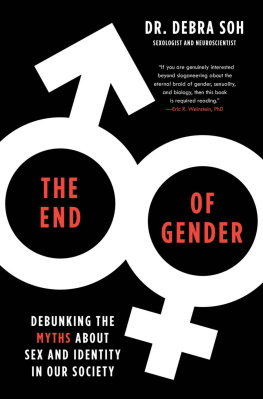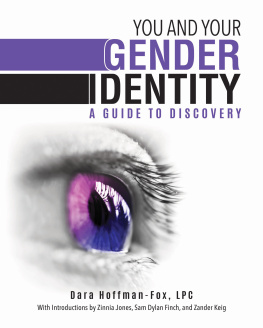Routledge Revivals
Community, Gender, and Individual Identity
David Aers explores the treatment of community, gender, and individual identity in English writing between 1360 and 1430, focusing on Margery Kempe, Langland, Chaucer, and the poet of Sir Gawain. He shows how these texts deal with questions about gender, the making of individual identity, and competing versions of community in ways which still speak powerfully in contemporary analysis of gender formation, sexuality, and love. Making wide use of recent research on the English economy and communities, and informed by current debates in the theory of culture and gender, the book will be of interest to those concerned with Medieval studies, Renaissance studies, and Womens studies.
Community, Gender, and Individual Identity
English Writing 1360-1430
David Aers
First published in 1988
by Routledge
This edition first published in 2018 by Routledge
2 Park Square, Milton Park, Abingdon, Oxon, OX14 4RN and by Routledge
711 Third Avenue, New York, NY 10017
Routledge is an imprint of the Taylor & Francis Group, an informa business
1988 David Aers
The right of David Aers to be identified as the author of this work has been asserted by them in accordance with sections 77 and 78 of the Copyright, Designs and Patents Act 1988.
All rights reserved. No part of this book may be reprinted or reproduced or utilised in any form or by any electronic, mechanical, or other means, now known or hereafter invented, including photocopying and recording, or in any information storage or retrieval system, withour permission in writing from the publishers.
Publishers Note
The publisher has gone to great lengths to ensure the quality of this reprint but points out that some imperfections in the original copies may be apparent.
Disclaimer
The publisher has made every effort to trace copyright holders and welcomes correspondence from those they have been unable to contact. A Library of Congress record exists under ISBN: 88009704
ISBN 13: 978-1-138-30567-0 (hbk)
ISBN 13: 978-1-315-14199-2 (ebk)
COMMUNITY, GENDER, AND INDIVIDUAL IDENTITY
English writing 1360-1430
DAVID AERS
First published in 1988 by
Routledge
11 New Fetter Lane, London EC4P 4EE
29 West 35th Street, New York NY 10001
1988 David Aers
All rights reserved. No part of this book may be reprinted or reproduced or utilized in any form or by any electronic, mechanical, or other means, now known or hereafter invented, including photocopying and recording, or in any information storage or retrieval system, without permission in writing from the publishers.
British Library Cataloguing in Publication Data
Aers, David
Community, gender, and individual identity: English writing 1360-1430.
1. Poetry in English, 1066-1558
Critical studies
I. Title
821'.1'09
ISBN 0-415-01378-X
ISBN 0-415-01379-8 Pbk
Library of Congress Cataloging in Publication Data
Aers, David.
Community, gender, and individual identity: English writing, 1360-1430/David Aers.
p. cm.
Bibliography: p.
Includes index.
ISBN 0-415-01378-X. ISBN 0-415-01379-8 (pbk.)
1. English literatureMiddle English, 1100-1500History and criticism. 2. Identity (Psychology) in literature. 3. Individuality in literature. 4. Community in literature. 5. Sex role in literature. I. Title.
PR275.I34A35 1988
820'.9'001dcl9 88-9704
CIP
Thus the original doubt as to which was more real, the common sense world or the transfigured one, could now be answered: the transfigured world was the real one, potentially, because the mystery was there in the developing living facts evolving under one's own nose, not in some far away fairy-land.
(Marion Milner, On Not Being Able To Paint, 1957)
There are many people I would like to thank in connection with making this book. Those whose admirable labours in the field of medieval studies I am most conscious of leaning on, and to whom I am immensely grateful, I have sought to acknowledge in the notes. Rodney Hilton kindly read and commented on an early version of the first chapter with his habitual depth of knowledge and clarity of perception. Barrie Dobson also commented on that version and an outline of the book. For helpful discussion of some of the concerns informing I would like to thank Linda Macfarlane, Sarah Beckwith, and Paul Gilbert. I am very grateful to Derek Pearsall for an exceptionally scrupulous, helpful, and generous reading of the typescript. Many of those who have influenced my writing most profoundly may well not appear in the book or the notes at all either because the assimilation has been so thorough that the influence is pervasive or because the influence is on a way of looking at things rather than any specific point that could appear in a note. But I would at least like to thank Sita Narasimhan, Tony Spearing, Derek Pearsall, the late Elizabeth Salter (in whose memorial volume Leeds Studies in English an early version of the first chapter appeared), Bob Hodge, and Gunther Kress. Perhaps I should also note that some very diverse and deeply contradictory writings within some of the various psychoanalytic traditions, feminist traditions, and Marxist traditions have constantly engaged my attention and stimulated my reflections.
I have enjoyed working out much of the material in the book in seminars with students in the School of English and American Studies at the University of East Anglia, That institution has constantly enabled the kind of courses from which this book emerged. I hope it may long survive the current government's attack on the humanities in Britain.
My thanks are due to the British Academy and the School of English and American Studies for grants towards the preparation of my manuscript, and to Ann Cook for typing it. Acknowledgements are also due to Oxford University Press for permission to quote from The Works of Geoffrey Chaucer, ed. F. N. Robinson, 2nd edn (1957); Athlone Press for Piers Plowman. The B Version , ed. E. T. Donaldson and G. Kane (1975); Malcolm Andrew and Ronald Waldron for permission to quote from the edition of The Poems of the Pearl Manuscript (Arnold, 1978).
University of East Anglia, Norwich
December 1987
Pleas held, on Thursday 16 July 1381, before Hugh la Zouche and his fellows, assigned to hear, punish and chastise the rebels and disturbers of the peace in the said county (of Cambridge).
John Shirle of the county of Nottingham was taken because it was found that he had been a vagabond [ vagabundus ] in various counties during the whole time of the disturbance, insurrection and tumult, carrying lies as well as silly and worthless talk from district to district, whereby the peace of the lord the king could rapidly be broken and the people be disquieted and disturbed. Among other damaging words, namely after the proclamation of the peace of the lord the king made on the aforesaid day and year, when the justices assigned by the lord the king were holding sessions in the town, he said in a tavern in Briggestrete [Bridge Street] in Cambridge, where many were assembled to listen to his news and worthless talk, that the stewards of the lord the king as well as the justices and many other officers and ministers of the king were more deserving to be drawn and hanged and to suffer other lawful pains and torments than John Balle, chaplain, a traitor and felon lawfully convicted. For John Shirle said that he [Ball] had been condemned to death falsely, unjustly and for envy by the said ministers with the king's assent, because he was a true and worthy man, prophesying things useful to the commons of the kingdom and telling of wrongs and oppressions done to the people by the king and the aforesaid ministers; and Ball's death would not go unpunished but within a short space of time he would well reward both the king and his said ministers and officers. These sayings and threats redound to the prejudice of


